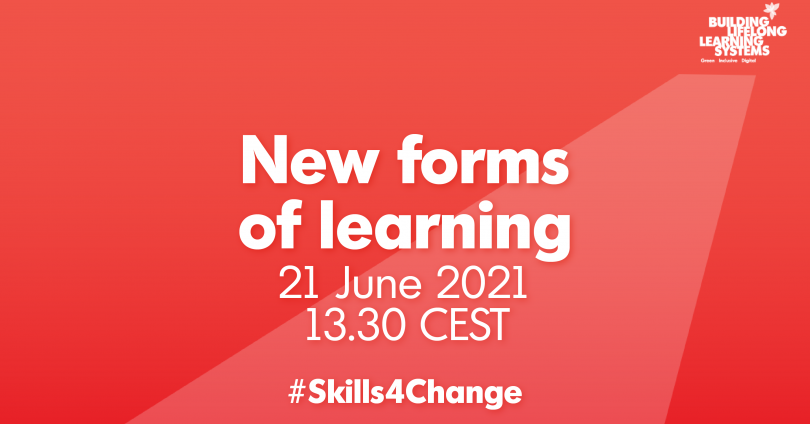
A glance ahead at conference session 2: New forms of learning
For some people, learning is almost second nature. For others, it is a drag. People who have had bad experiences in education can be hard to motivate into a return to learning. But in a world where change is a constant, lifelong learning is a need.
To avoid losing learners to negative experiences and to regain people who have missed the motivation to learn, we need to be more adaptive to different learning needs. We need to embrace new ways of learning and create meaningful and engaging learning environments where people feel safe to learn and make mistakes and where they are encouraged to continue learning.
Exploring how this can be done will be the aim of the thematic session ‘New forms of learning’ of the ETF 2021 international conference ‘Building lifelong learning systems: skills for green and inclusive societies in the digital era online’.
“Learning environments become meaningful when they offer relevant learning content in an authentic context,” says Jolien van Uden, ETF human capital development expert in innovative teaching and learning. “They must offer knowledge, skills and competences that are relevant to the economy and society and that are of interest for the learner. Real work contexts, in apprenticeships for example, are of course the most authentic, but authentic learning contexts can also be created outside an actual workplace. A mix of different environments is often needed to help learners acquire the desired learning outcomes.”
“Learning environments become engaging when they invite learners to explore, to try new things, to make mistakes, to collaborate and to take ownership of their own learning process. They should be responsive to individual needs. Learning content and activities should be connected to each other. Assessment should be aligned with the learning goals. Feedback should be formative.”
In other words, education and training need to be even more student-centred. They should incorporate pedagogical approaches such as experiential learning, blended learning, game-based learning, embodied learning and social and collaborative learning. In many learning contexts these principles are not yet applied, but they underpin new ways of learning and can result in higher levels of motivation and better learning outcomes.
Internationally, new forms of learning have received increasing spotlight. Higher participation of specifically low-qualified adults in learning is a key objective of the European Skills Agenda. Learning environments are also an important part of the OECD Learning Framework 2030, while UNESCO-UNEVOC works on making learning more attractive and relevant for learners through the BILT project – Bridging innovation and learning in TVET, and their work on the project Skills and Innovation Hubs. The ETF works on the topic through its own Creating New Learning initiative
Learning environments have also acquired a new urgency through Covid-19, which has forced a breakthrough in learning technologies that were available but not really used to the extent that the pandemic made them be used.
“We know that traditional teaching is neither the most engaging and motivating, nor even always the right form,” says Jolien van Uden. “But it is not always easy to change. In their own specific context, teachers may find it difficult to update content and even to change pedagogies. We need to help them, but we also need to reshape policies so that they encourage innovation in learning.”
“The focus of our session will be on how to create these learning environments. We will take three successful and innovative examples from different countries and look at what makes them work. Then we will look more generically at the system changes that promote innovation in learning environments.”
In the plenary part, the session will feature three innovative cases and a panel discussion. These will be streamed live and can be attended by anyone in the world. After this, the session will break into smaller groups for discussions.
Did you like this article? If you would like to be notified when new content like this is published, subscribe to receive our email alerts.